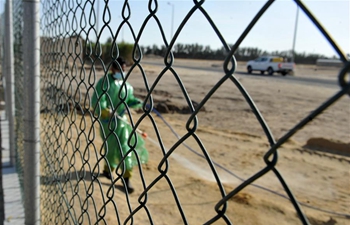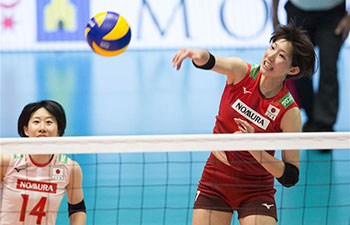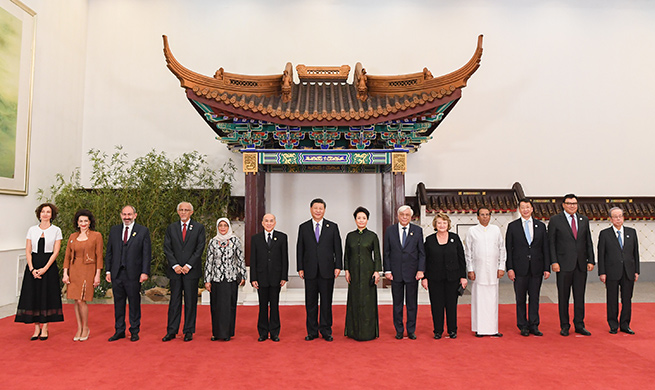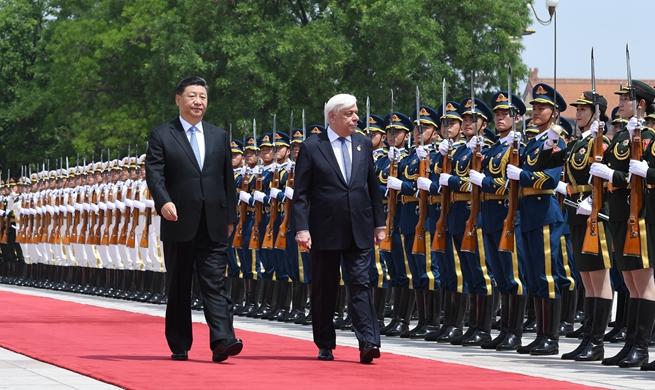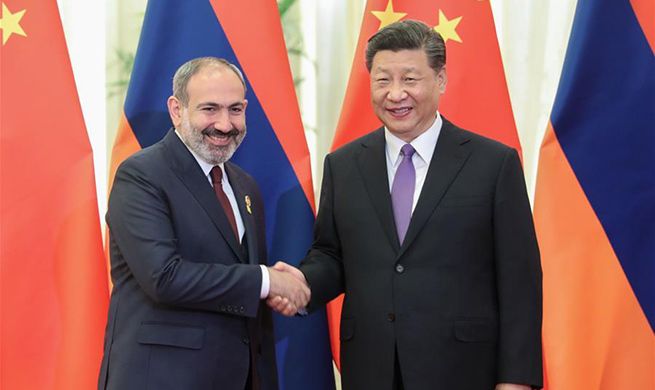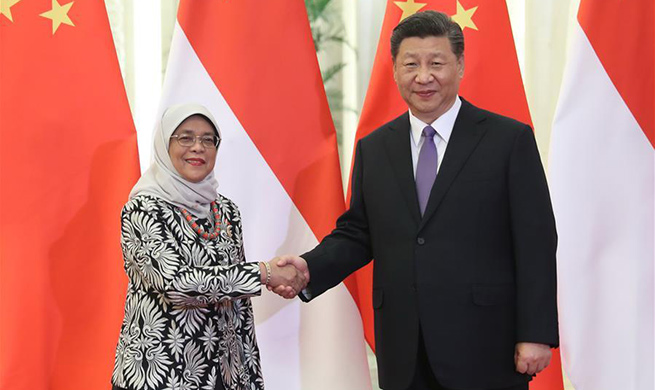by Murad Abdo
ADEN, Yemen, May 14 (Xinhua) -- Yemen's Houthi rebels claimed responsibility for the drone attack on Saudi Arabia's oil pipeline booster stations on Tuesday, further intensifying the country's years-long conflict.
Houthi spokesman Mohammed Abdulsalam said on Twitter that the attack on Saudi oil facilities was a response to the Saudi attacks on his group, vowing Houthis' readiness to launch more such attacks.
He said that the group's forces have the ability to widen the scope of military operations against Saudi Arabia and other countries involved in the coalition. "This is a message to Saudi Arabia, stop your aggression," said the Houthi spokesman.
The Houthis-affiliated Masirah television network revealed more details, saying that seven drones carried out an attack targeting pumping stations in Saudi Arabia.
The Yemenis were hoping that the Houthi withdrawal from three key ports in the country's strategic Red Sea port city of Hodeidah under a UN-brokered peace deal may lead to de-escalation of the conflict, but the latest drone attack on Saudi oil facilities has led to the opposite.
Houthi leaders previously vowed to launch missiles against Saudi captial of Riyadh and Abu Dhabi, capital of the United Arab Emirates (UAE), if the coalition forces, led by Saudi Arabia, assaulted the port city of Hodeidah.
For Ibrahim Ban Naji, a Yemeni observer, the odd timing of the Houthi drone attack that targeted Saudi Arabia raised a series of questions particularly as no signs of military escalation were reported in Hodeidah, where pro-Houthi forces actually began unilateral redeployment two days ago.
"Houthis tried to appear non-violent in front of the world and that they are supporting peace through announcing an unilateral withdrawal from Hodeidah's ports just two days ago," said Ibrahim.
But the drone attack did not serve the Houthis strategy particularly at this time, and proved the opposite, showing their real intention of escalating tension, he added.
The Yemeni government strongly condemned the Houthi drone attack, which was directly incited by Iran, according to a statement released by the state-run Saba News Agency.
The government warned that the Iran-backed Houthis have become a real threat to regional and global security. "These are terror acts that don't differ from what any other terror group does," it said.
Earlier in the day, Saudi Arabia's Ambassador to Yemen Mohamed al-Jaber said in a tweet that the Houthi militia proves its obedience to Iran by "serving its terrorist agenda" at the expense of Yemeni people and regional security.
The Saudi envoy said that the Houthis are "disregarding the difficult humanitarian situation in Yemen," and continuing their "defiance of all international efforts aimed at bringing peace to Yemen."
Elsewhere in the country's southern part, Houthis continued with military mobilizations and began advancing deeper into the government-controlled province of Dhale, following weeks of intense fighting that left scores killed or injured.
UN Special Envoy to Yemen Martin Griffiths voiced his deep concern about the ongoing escalation in Dhale, and urged all parties to exercise utmost restraint.
The UN envoy said that any military escalation risks a setback in the progress towards peace in Yemen.
Ali Hadi, a strategic military expert based in Aden, told Xinhua that the military capabilities of the Houthi group should be taken more seriously following years-long of the anti-Houthi military campaign.
"Houthis are posing a real threat not only for Yemen but for the whole region, and it's time to review the Saudi-led coalition's plans and revise its military strategies with more seriousness," he said.
He added that the attack on Saudi oil facilities showed that the rebels are not ready to promote peace and are obviously acting according to their close ties with their foreign allies.
He expected that the drone attack to trigger more serious reaction from the anti-Houthi military coalition to enter a new phase aimed at eradicating the military capabilities of the rebel group.
Houthi rebels have launched dozens of drone strikes and ballistic missile attacks on Saudi cities in the past months to retaliate against the Saudi-led coalition's airstrikes on their positions.
Saudi Arabia has been leading a Sunni Arab military coalition against the Yemeni Shiite Houthi rebels since March 2015 to support the internationally-recognized government of President Abd-Rabbu Mansour Hadi after the rebels forced him into exile and seized much of Yemen's north, including the capital Sanaa.





